Nursing Across Borders: Prof. Kutenplon Founds AIDS Orphan Care
- News & Events
- News
- Nursing Across Borders: Prof. Kutenplon Founds AIDS Orphan Care
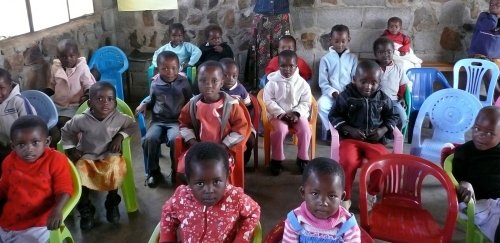
Nursing faculty are reaching outside the community to help global communities.
“For many years, I had been wondering what I could do to help in the HIV/AIDS pandemic,” says Associate Professor of Nursing Deborah Kutenplon. “In 2008 I decided to pack up my family and move to Lesotho.”
Lesotho is a country in Africa with the second highest HIV rate in the world. One in four adults is HIV-positive.

For a year, Kutenplon worked at Tsepong HIV Clinic in Lesotho, alongside other international volunteers – doctors and nurses – and local staff.
“At that time, Tsepong had been open for only four years and was one of only four HIV clinics in the country,” she says. “Yet during the time I was there, the clinic saw its 10,000th patient.”
HIV is a virus that is spread when infected blood, breast milk, semen, vaginal or anal fluids enter the body. The virus destroys white blood cells (CD4 T cells) that help the body fight off disease. HIV becomes full blown AIDS when the CD4 T cell count falls below 200 or the patient develops a serious infection or disease.
“An entire generation of parents in Lesotho have died of HIV/AIDS, leaving more than 100,000 orphans,” Kutenplon says.
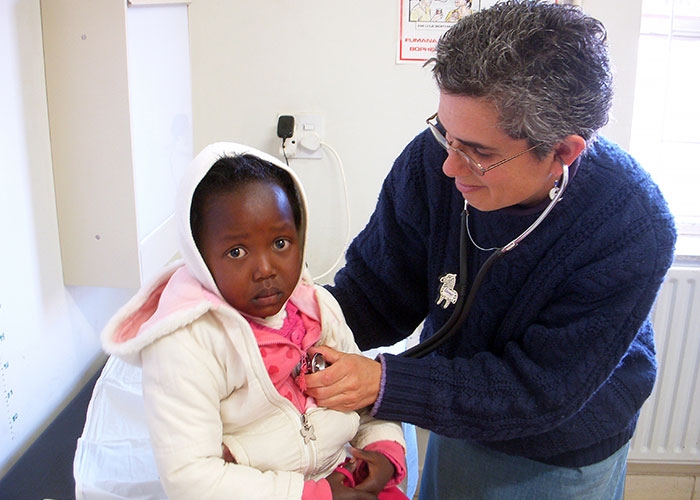
Upon returning to the United States, she felt that she needed to do more.
"I thought, if I could funnel more resources to the people doing the work on the ground, they could do more for more children. That’s how AIDS Orphan Care got started.”
Founded in 2010, AIDS Orphan Care is a 501(c)3 nonprofit that “provides AIDS orphans and children who are HIV-positive with the same things we want for our own kids – food, clothing, a warm bed, an education, health care and the knowledge that someone cares,” Kutenplon says.
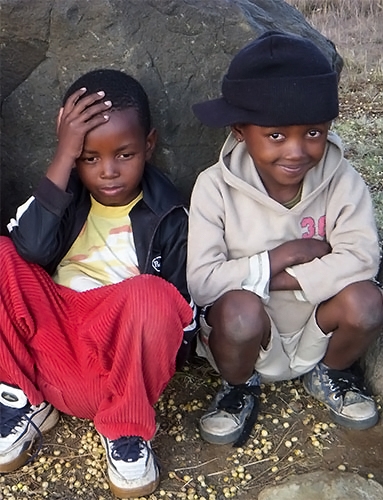
She recounts the story of Mpho who, after her parents died of HIV/AIDS, went to live with her aunt. The aunt, knowing what killed Mpho’s parents, took the child to be tested for HIV. When Mpho tested HIV-positive, her aunt made her sleep in a shed outside. She wouldn’t let her eat with the rest of the family. Mpho was three years old. Eventually a granny in her village, unrelated to Mpho, took her in and they’ve lived together ever since. However, the granny was too old to work and they often struggled with lack of food. AIDS Orphan Care was founded to help orphans like Mpho.
The nonprofit has two projects: The Peanut Butter Project and The Mamello Primary School.
The Peanut Butter Project was designed to feed malnourished, HIV-positive children. “Peanut butter is a high protein, locally available food. It’s the primary ingredient in Plumpynut, the medical supplement given to acutely malnourished children all over Africa,” she says.
Kutenplon wires money to five Baylor Pediatric HIV Clinics in Lesotho to purchase and distribute jars of peanut butter to malnourished HIV-positive children during their doctor’s visits.
“One kilogram of peanut butter is protein for a month,” she says. “It doesn’t need refrigeration. It doesn’t require cooking.”
The Mamello Primary School is her other project.
“I met the founder, the school’s namesake, while I was there," Kutenplon says. “Mamello had polio as a child and had started a school where physically disabled children could come and live and get physical therapy and an education. When HIV hit the country, she saw that AIDS orphans and HIV-positive children were being stigmatized at regular schools. So, she expanded her school to include them.”
Though Mamello Primary School is open to the general public, it is particularly sensitive to the disabled, HIV-positive and AIDS orphan demographic. Over 500 students from 18 villages learn there. More than 200 are orphans, many of them HIV-positive.
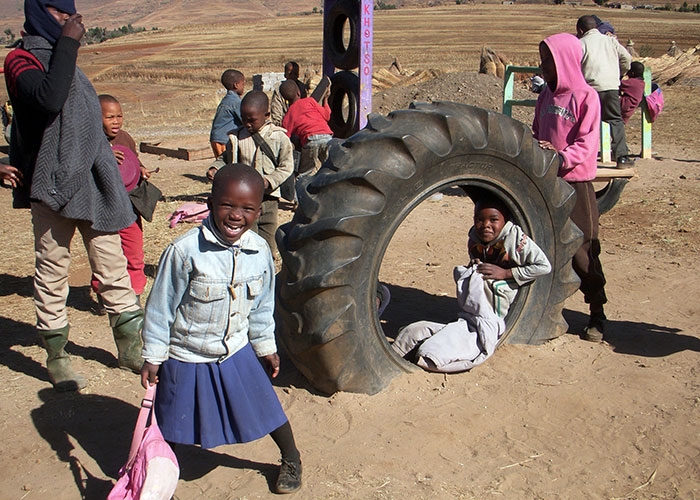
AIDS Orphan Care assists with the basic needs of these children, whether it be clothing, blankets or HIV medicine. Though the Lesotho government provides free HIV medical care, it does not pay for certain medicines or chest x-rays needed to diagnose tuberculosis, a common killer of HIV-positive people. (Approximately 73% of Lesotho patients with tuberculosis are co-infected with HIV.)
For the past 10 years, AIDS Orphan Care has expanded to fund a free breakfast and lunch program for Mamello students throughout the school year. More recently, the fund paid for a vegetable garden and the purchase of hens, cows and pigs to help the school become more self-sustaining. Food crops, eggs and meat help feed the children, while the pigs’ offspring can be sold to pay for teachers’ salaries.
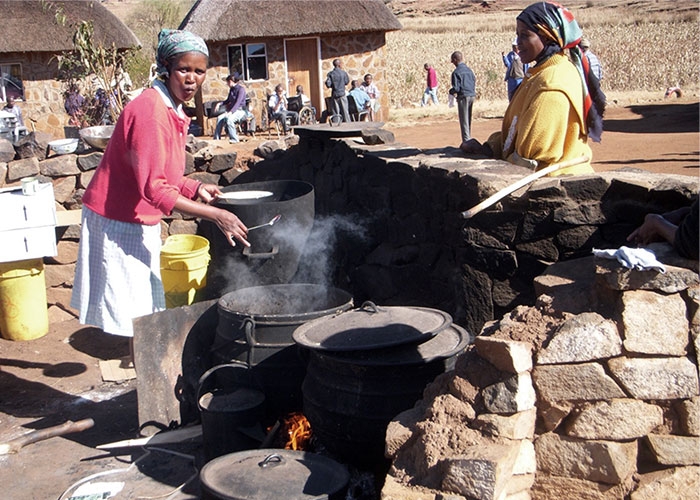
As an all-volunteer organization, donations to AIDS Orphan Care go directly to the clinic administrators and to Mamello for the children. To raise funds, Kutenplon hosts a walkathon each year whose participants include RIC nursing faculty, students and their families.
“During COVID, I was afraid that the donations would drop off because we couldn’t hold the yearly walkathon,” she says. “We actually raised more money. I think people became sensitized to how fragile life is, seeing so many people die of COVID, and how much we are all part of one community. I think it inspired them to give more.”
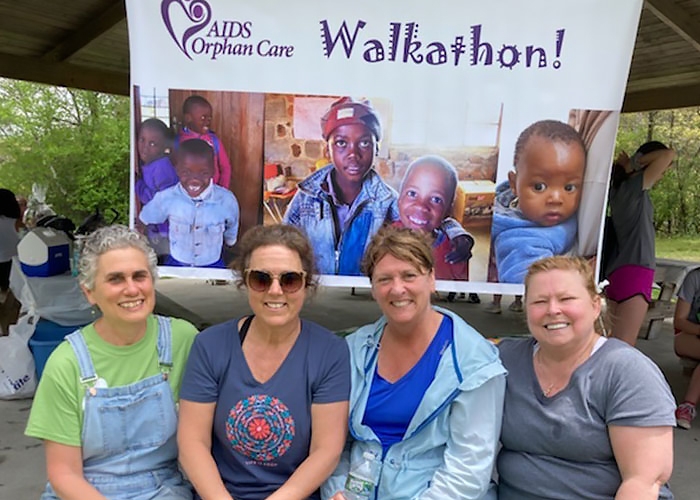
When asked what drives her to volunteer and give of her services, Kutenplon says, “My religion. I’m Jewish, and we place a great deal of emphasis on everyone using whatever resources you have – whether it’s money, knowledge or energy – to repair the world. That’s why we’re here. That’s why we’re alive.”
Along with AIDS Orphan Care, Kutenplon volunteers for Women’s Refugee Care, an advocacy agency in Providence; she is faculty advisor for the Zvart Onanian School of Nursing’s Multicultural Student Nurse Organization; and chair of the Zvart Onanian School of Nursing’s Diversity, Equity and Inclusion Committee.
“I think it’s important that nursing students recognize that being a nurse is not just about doing your job well, though that’s obviously important,” she says. “It’s also about looking around you to see what else you can do with your skills and your resources.
“Maybe we can’t solve the problem of world hunger, or poverty or AIDS in Africa. But we can help an orphan get enough to eat today. We can make sure they’re warm in winter. We can pay for their school supplies. We can get them to the doctor for HIV care. We can let an orphan know that they’re not alone, that on the other side of the world someone cares.”
For more information on AIDS Orphan Care, or to donate, visit the nonprofit’s website at aidsorphancare.org.
